2020 Faithful Families Summit
Engagement and Equity: Faith and Health Partnerships for Thriving Communities
March 30 – April 3, 2020
The event is now over. Thanks to everyone who participated and took part in our conversations without the week!
What is the Faithful Families Virtual Summit?
The Summit is structured so that you can participate at your own pace.
Each day this week, we will focus on a health-related topic within the faith and health space. You will receive a newsletter in your email inbox every morning (just like this one!), with materials to review that day or whenever is most convenient for you.
Each newsletter will include:
- links to audio recordings, videos, or a live webinar
- additional resources related to the day’s topic
- personal challenge to engage with the day’s topic
- and tools to help address the COVID-19 outbreak
Join the conversation on social media!
Throughout the Summit week, we also encourage you to engage with #FFSummit2020 via social media (Twitter and Facebook), where we will be sharing and posting about the Summit event and resources.
Monday, March 30 – Friday, April 3
For each day of the week, the Summit will focus on a particular health-related topic within the faith and health space.
The newsletters will also contain:
- a daily personal challenge
- helpful resources related to the day’s topic
- tools to help address the COVID-19 pandemic
- hashtag to share thoughts/feedback on social media
Day 1 (Monday, March 30)
- Message from Dr. Pernessa Seele
- Welcome from the Faithful Families Team
- Conversation on Community Engagement And Equity [Audio Recording]
Day 2 (Tuesday, March 31)
- Addressing the COVID-19 Pandemic: The faith community responds [Live Webinar, 1-2pm]
Day 3 (Wednesday, April 1)
- Mental Health with Dr. Janee Avent Harris [Live Webinar, 1-2PM]
Day 4 (Thursday, April 2)
- Adverse Childhood Experiences: How faith communities can address trauma and grow resilience [Live Webinar, 11AM-Noon]
Day 5 (Friday, April 3):
- From Recruitment to Long-Term Partnerships: Growing your Faithful Families programming [Audio Recording]
- Message from Mark Benton and Dr. Cardra Burns from NC Division of Public Health
- Message from Dr. Richard Bonanno from NC State Extension
- Recognition of Summit Award winners
Day 1 (Monday, March 30)
Welcome Message
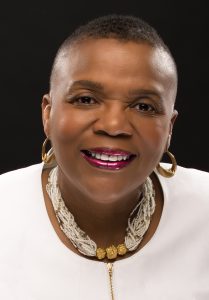 Dr. Pernessa Seele is Founder & CEO of the Balm in Gilead, Inc., a not-for-profit organization celebrating 30 years of providing technical support that strengthens the capacity of faith institutions in the USA and in Africa to promote health education and services that contribute to the elimination of health disparities.
Dr. Pernessa Seele is Founder & CEO of the Balm in Gilead, Inc., a not-for-profit organization celebrating 30 years of providing technical support that strengthens the capacity of faith institutions in the USA and in Africa to promote health education and services that contribute to the elimination of health disparities.
As a pioneer in developing public health & faith-based models for engaging individuals in health promotion and disease prevention interventions, Time Magazine 100 names her One of the Most Influential Persons in the World in 2006; Essence Magazine, in its 35th Anniversary issue, named Dr. Seele one of the 35 Most Beautiful and Remarkable Women in the World. In May 2010, Dr. Seele was selected as 21 Leaders of the 21st Century of Women E-News in New York City. Clark Atlanta University honored Dr. Seele with the 2008 Pathway of Excellence Award, citing her as one of its most outstanding graduates of all time. In October 2017, His Eminence Timothy Michael Cardinal Dolan, Archbishop of New York, bestowed the Pierre Toussaint Medallion upon Dr. Seele.
Dr. Seele is the author of Stand Up to Stigma! How to Reject Fear & Shame. She is an honorary member of the Alpha Kappa Sorority, Inc. She received a Bachelor of Science degree and Master of Science from Clark Atlanta University in 1976 & 1979 respectively and Doctorate of Human Letters from the College of New Rochelle, NY in 2007. She is a native of Lincolnville, SC.
Conversation on Community Engagement and Equity

Reverend Angela Brown was born and raised in Winston-Salem, NC. She attended St. Augustine’s College in Raleigh, NC, with concentration of studies in both Chemistry and Business Management. Rev. Angela Brown is an ordained minister in the Christian Methodist Episcopal Church, and is the Pastor of Shouse Temple CME Church in Winston-Salem, NC.
Rev. Brown has served faithfully for twenty years at Wake Forest Baptist Health. She served eighteen years as Senior Physical and Occupational Therapist Technician. For the past two years, Rev. Angela Brown has served as the Community Health Coordinator in the FaithHealth Division. On a daily basis, Rev. Brown engages with the social determinants of health for persons who live in communities that have the highest Charity Care rate, highest Emergency department visits, lowest income rate and minimum access to Health Care services. Rev. Brown also has the ability to connect with ministries and support systems offered by communities of faith.
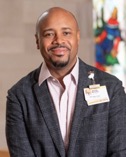
Jeremy Moseley is the Director for Community Engagement of Wake Forest Baptist Health’s FaithHealth Division, which is in Winston-Salem, NC. He provides support for six full-time Community Health Workers and forty-two part-time Connectors aligned with faith and social networks across the region who extend patient care into the community. Currently, he also provides administrative support and direction for community benefit and community health needs assessment efforts, population health strategies, Medicaid Managed Care partnerships, and community stakeholder engagement.
He has a B.S. in Public Health Administration from UNC-Chapel Hill and a Master’s in Public Health Analysis and Management from East Carolina University. He has worked to improve community-based care transitions, increase community engagement and access to services, and link community resources to healthcare systems. He has previous experience designing regional projects funded by the Centers for Disease Control and Prevention to address heart disease and stroke preventions and systems of care, projects funded by the Centers for Medicaid and Medicare Services to address care transitions and hospital readmissions, and health system supported programs to improve transitions of care and the health of individuals residing in socially complex communities. He staffed a state heart disease and stroke prevention legislative committee; and has served on workgroups for Stakeholder Health, a Robert Wood Johnson Foundation and health system funded learning community, with other participating health systems to transform health through community partnership. He has worked in a variety of settings including an academic medical center, health plan, state health department, academic research center, federally qualified community health center, and community hospital to implement various health care, public health, and strategic planning activities to improve systems, health, and well-being through state and local community partnerships.
June Britt, FaithHealth Connector
Pastor Daniel Sostaita, Iglesia Cristiana Sin Fronteras, FaithHealth Connector
Dr. Jon Houser, Pastor of Disciples of Grace Ministries, FaithHealth Connector
Day 2 (Tuesday, March 31)
Addressing the COVID-19 Pandemic: Faith Communities Respond
Dr. Sarah Kirby, State Program Leader for Family and Consumer Sciences & Professor, NC State University, Agricultural and Human Sciences Department
Dr. Ben Chapman, Extension Food Safety Specialist & Professor, NC State University, Agricultural and Human Sciences Department
Day 3 (Wednesday, April 1)
Faith and Mental Health
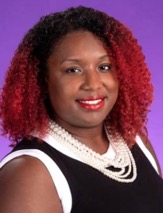
Dr. Janeé Avent Harris received her Master of Science in Clinical Mental Health Counseling and Doctorate of Philosophy in Counseling and Counselor Education from The University of North Carolina at Greensboro. She is a National Certified Counselor, Approved Clinical Supervisor, and Licensed Professional Counselor Associate with clinical experience in a variety of settings including a college counseling center, level 1 trauma center, and a child/adolescent inpatient behavioral health center.
Currently, she is an Assistant Professor in the Counselor Education program at East Carolina University. She is an active researcher, publishing and presenting on subject matters including diversity and cultural issues, examining the role of religion/spirituality in African American mental health help-seeking behaviors, counselor training and clinical supervision, and multicultural considerations in counselor education/academia. Her work is motivated by her passion to see people from all backgrounds and life experiences have access to quality and culturally sensitive mental health services.
Day 4 (Thursday, April 2)
Adverse Childhood Experiences: How faith communities can address trauma and grow resilience
Dr. Kim Allen, Extension Specialist and Associate Professor, Agricultural and Human Sciences Department, NC State University
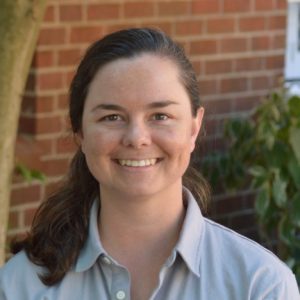
Jessica Stokes is the Partners in Health and Wholeness (a program of the NC Council of Churches) Regional Coordinator for Eastern North Carolina. She joins the Council with a deep love for North Carolina, returning home after directing an interfaith nonprofit in Washington State. Jessica has lived throughout NC, studying and working in Winston-Salem, Wilmington, and the Outer Banks. Jessica earned her Master of Divinity from Wake Forest University and BS in Clinical Psychology from Averett University. She is an ordained Baptist minister. Jessica’s background includes non-profit work, hospital chaplaincy, higher education, and the local church. Her convictions are rooted in experiences that range from ministry in Appalachia and a coastal psychiatric hospital to international travel. Jessica’s work for PHW will include a focus on mental health education and advocacy. Jessica is based in Wilmington and connects with congregations and partners in the Eastern part of the state.
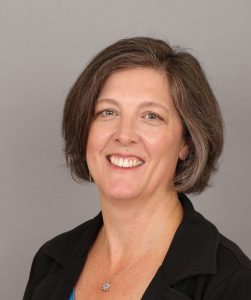
Sharon Hirsch has served as the President and CEO of Prevent Child Abuse North Carolina since October 2015, where she leads a staff of 21 that focuses on strengthening the systems of support to build safe, stable, nurturing relationships and environments so that children grow up in strong families and supportive communities, so they can thrive. She has more than 25 years’ experience in nonprofit and government agency management, public relations, advocacy and child well-being. Before joining PCANC, she served for four years as the Executive Director of Donate Life NC where she managed the states’ organ, eye and tissue donor registry and grew the number of registered organ donors by 1 million North Carolinians. Her experience includes service in leadership roles at the Durham County Department of Social Services, where she managed an agency budget of more than $300 million and led the agency’s community engagement work. She also served as the first Executive Director of the NC Association of County Directors of Social Services and as Staff Director at The Council for State Governments in Lexington, KY. She currently serves on the Board for the Child Care Services Association and is a member of the State Advisory Committee for Community Child Protective Teams and on the Design Team for Pathways to Grade Level Reading. At PCANC she has led efforts to catalyze community prevention plans, has increased staff capacity to provide intermediary supports for evidence-based parenting programs and has secured more than $1 million in new investments in PCANC.
Hirsch holds a bachelor’s degree in Political Science from Furman University and has completed coursework towards a master’s degree in public administration. She lives with her husband, Steve, in Durham, where she is active in the community and is extremely proud of her two adult children – one completely “off the family payroll” working in Raleigh and the other in graduate school.
Day 5 (Friday, April 3)
From Recruitment to Long-Term Partnerships: Growing your Faithful Families programming
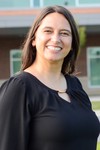
Michelle Estrada is the Family and Consumer Sciences Agent specializing in food and nutrition and volunteer development through NC State University at the Wayne County Cooperative Extension. Michelle’s role is to design, implement and evaluate educational programs in the areas of foods, nutrition and wellness, and food preservation. Michelle has helped parents of children from birth to age 5 prepare their children to succeed in school through home visits and parenting classes. Her experience and understanding of Latino and American culture has helped her to develop handouts, newsletters and other educational materials for Spanish speakers. She holds a Bachelor of Childhood Education degree from Mexico and has experience working in the classroom as a preschool teacher at Head Start as well as in Mexico in rural and private school settings with Reggio Emilia system. Michelle serves on the Wayne County NC Pre-K Committee, Wayne County Latino Council, WAGES Board, and WAGES School Readiness Committee.
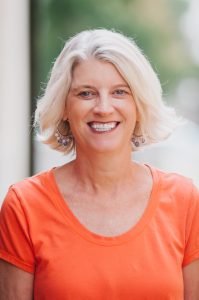
Amy Hanson is the Program Associate and Faith Community Coordinator for the Welborn Baptist Foundation. A registered nurse since 1989, she has worked in a variety of settings including bedside nursing, home care, outpatient clinic, worksite wellness, and community clinics. Since 2011, in her role at Welborn Baptist Foundation, Amy has worked to promote health and wellness in the church and community through the Upgrade Initiative and the promotion of Faith Community Nursing. Amy works with local Faith Based Non-Profits to live out the mission of the Welborn Baptist Foundation, “creating communities that flourish with the well-being, abundance, and peace that God desires.”
Closing Messages
Mark Benton, Assistant Secretary for Public Health at NC Department of Health and Human Services
Dr. Cardra Burns, Deputy Secretary for Public Health at NC Department of Health and Human Services
Dr. Richard Bonanno, Assistant Dean, NC State University, College of Agricultural and Life Sciences; and Director, NC State Extension
-
Day 5 (April 3)
Welcome to DAY 5 of #FFSummit2020!
On this page, you can find today’s conversations, recordings, and resources.
You made it to the last day of the Faithful Families Summit!
We are grateful for the opportunity we have had to learn alongside you this week and to think together and engage in conversations about the important role that faith communities play in promoting health equity and ways that Extension and public health professionals, community partners and faith leaders can work together to make meaningful strides toward health equity in the communities we serve.
Take a few moments to hear these messages of thanks from Dr. Richard Bonanno (Assistant Dean at NC State University and Director of NC State Extension), Mark Benton (Assistant Secretary for NC Division of Public Health), Dr. Cardra Burns (Senior Deputy Director at NC Division of Public Health), and the Faithful Families team.
A big CONGRATULATIONS to the winners of our 2019 Awards. Click here to learn about the work that Robeson County, NC and UT-TSU Shelby County, TN have done to implement Faithful Families in their communities.
Finally, thank you to members of the Summit Planning Team: Gidgett Sweazy with Kentucky State University Extension, Amy Hanson from the Welborn Baptist Foundation, Dr. Paula Allen-Meares from the University of Illinois at Chicago, and Renee Parrott, Faithful Families Lay Leader.
A message of gratitude from the Faithful Families team
Thank you, on behalf of the NC Division of Public Health![WATCH VIDEO >>]
English subtitles available.
Thank you, on behalf of NC State Extension!English subtitles available.
Partnerships & Engagement
We are wrapping up this Summit week with a focus on strategies for growing your Faithful Families programming. We’ll think about ways to create and sustain long-term partnerships to support faith communities in their efforts to promote health and to become agents of change in their wider communities.
Our conversations, resources and personal challenges today will help us to think creatively about strategies for deepening engagement with faith communities from the earliest stages of recruitment through longer-term sustained partnerships to extend the impact of their work to promote health. Let’s think together about the strength and impact of #FaithHealthPartnerships and long-term #CommunityEngagement.
Amy Hanson (Program Associate and Faith Community Coordinator for Wellborn Baptist Foundation) and Michelle Estrada (Family and Consumer Sciences Agent for NC State University at Wayne County Cooperative Extension) joined us for a conversation about their experiences and challenges with and strategies for recruitment and long-term engagement with faith communities through their Faithful Families programming.
Personal Challenge
Create a 1 min story about an experience from your own life that has shaped the ways you think about and understand health. Find an opportunity to share your story and ask someone else in your community for their story.
Reflect on how this feels, what is the “fruit” of identifying and sharing our stories.
Look at a map of your community – it could be your block, your neighborhood, or your town or city. Locate the places that hold significant stories.What do these stories say about your community? About what is important to your community? How can you harness the power of these stories to build partnerships and sustain your work?Connect
Engage with #FFSummit2020 by sharing on social media!
Facebook
@FaithfulFamiliesThriving CommunitiesTwitter
@FFThrivingUse today’s hashtags to join the conversation. If you know of additional resources, tools, or upcoming events that would be of interest, email us or tag us on social media!
#FFSummit2020
#FaithHealthPartnerships
#Community Engagement
Resources
Check out these resources on partnerships and engagement. Also, learn more about Faithful Families and how you can bring the program to your community:
Articles
- Learn more about Faithful Families history and approach in Faithful Families, Thriving Communities: Bridging Faith and Health Through a State-Level Partnership (Dr. Annie Hardison-Moody, Julia Yao) Available here >>
- For recent program updates and impacts, check out our Faithful Families 2019 Annual Report Available here >>
Tools
-
Rural Health Information Hub compiled a list of helpful strategies and approaches for reaching and involving participants in health promotion activities, including links to further resources including US Department of Health and Human Services, Office of Population Affairs resources for recruitment, retention and engagement.
-
Faithful Families currently has more than 20 national partners, including universities, Extension programs, public health and faith communities across the United States, providing partners with training, curricula and instructional materials, evaluation tools and national leadership support.
If you are located outside of North Carolina, learn more about our national implementing partnership model and find out where our national partners are located.
If you are in North Carolina, learn more about the Faithful Families Flagship program and find out where our trained facilitators are located.
Videos
- Faithful Families Webinar: Effective Strategies for Building and Sustaining Faith Partnerships for Health Promotion, a webinar from Faithful Families. Available here >>
COVID-19 Resources
- Community is a vital resource during times of crisis. The COVID-19 pandemic is causing us all, including faith communities, to think creatively about how to maintain and build community during this time of social distancing. Sojourners has compiled Community Without Communing: Resources for Virtual Church. Read more about how faith-based organization and communities are rising to the challenge of supporting members and neighbors and fostering community through digital strategies.
- The impacts of COVID-19 are likely to be with us for some time to come. As you consider strategies for long-term engagement with faith communities, it may be helpful to think about the ways that different religious communities are adapting. Two religious studies professors break it down on a special podcast episode of Keeping it 101.
Read about the amazing things that faith communities are doing in…
Omaha, NE through Nebraska Extension
Robeson County in North Carolina
DONATE
CONTACT US
LEARN MORE
-
Day 4 (April 2)
Welcome to DAY 4 of #FFSummit2020!
On this page, you can find today’s conversations, recordings, and resources.
ACES & Resilience
Today, we will be focusing on Adverse Childhood Experiences (or ACES) and how faith communities might be able to help address some of the challenges that communities experience. What are the impacts of ACES on our children and the broader community? What are steps we can take to prevent ACES and build resilient communities?
The live discussion, personal challenges, and materials shared today offer ways that you and your community might foster and make connections that #BuildResilience.
Webinar Event
Join us for a live discussion on the impact of ACES and how communities of faith can help #BuildResilience and #BeAConnection. Presented by Sharon Hirsche (President & CEO of Prevent Child Abuse NC), Jessica Stokes (Regional Coordinator for Eastern North Carolina at Partners in Health & Wholeness), and Dr. Kim Allen (Extension Specialist and Associate Professor at NC State University).
In case you missed the webinar, you can watch the recording here.
A transcript for the webinar is available here.
Personal Challenge
Do something today to grow your connection with others in your local community. Perhaps you might think about contacting your local food bank or diaper bank to ask how you can help given that more families may experience food insecurity and financial uncertainty in the coming days, weeks and months. There are many things that we could all do to foster caring connections with those in our community.For more ideas, look through the list of Ways to Be A Connection, developed by Prevent Child Abuse North Carolina.Watch the trailer for RESILIENCE, a powerful documentary that shows how ACES affect children’s health and wellbeing throughout their life.
Consider sharing this short video with your organization or faith community. Perhaps they would be interested in learning more about ACES or signing up for a screening of the film.
Connect
Engage with #FFSummit2020 by sharing on social media!
Facebook
@FaithfulFamiliesThriving CommunitiesTwitter
@FFThrivingUse today’s hashtags to join the conversation. If you know of additional resources, tools, or upcoming events that would be of interest, email us or tag us on social media!
#FFSummit2020
#BuildResilience
#BeAConnection
Resources
Check out these resources to grow connections and #BuildResilience in your communities:
Articles
-
The CDC-Kaiser Permanente Adverse Childhood Experiences (ACE) Study is one of the largest investigations of childhood abuse and neglect and household challenges and later-life health and well-being. Available here >>
-
The Centers for Disease Control and Prevention provides factsheets to learn more about the problem and solutions; publications on the impact of ACES on various health outcomes (including mental health and chronic disease), and case studies from states that have used ACES data to inform their child abuse and neglect prevention efforts.
Fact sheets here >>
Publications here >>
Case studies here >>
Tools
- Harvard University’s Center on the Developing Child has a mission to drive science-based innovation that achieves breakthrough outcomes for children. Their Resource Library offers a wealth of trainings and guides, including InBrief: Resilience Series and Stress and Resilience: How Toxic Stress Affects Us, and What We Can Do About It. They also developed the Tipping the Scales: The Resilience Game, an interactive feature that teaches how the choices we make can help children and the community as a whole become more resilient in the face of serious challenges.
- The Connections Matter initiative engages community members in building caring connections to #BuildResilience and buffer against negative effects of trauma. They offer support for becoming a Connections Matter congregation, which equips faith communities and leaders to understand and make progress in building resilience; workshops/training; and a Connections Matter toolkit to help you share the message with your community and network that building connections are important for preventing ACES.
- ACEs Connection connects those who are implementing trauma-informed and resilience-building practices based on ACEs science. Their Resource Center is regularly updated with guides and tools. Available here >>
- The Centers for Disease Control and Prevention developed a comprehensive training to help you understand, recognize, and prevent ACEs. Available here >>
- CDC also developed a guide to help states and communities leverage the best available evidence to prevent ACEs from happening in the first place as well as lessen harms when ACEs do occur. Available here >>
Videos
- Watch this interview about what faith communities are doing to become trauma-informed, produced by the Greater Chicago Broadcast Ministries. Available here >>
- RESILIENCE: The Biology of Stress & the Science of Hope is a documentary that not only explains how exposure to trauma affects a child’s brain, but also demonstrates how this toxic stress increases children’s overall risk of developing diseases, engaging in risky behavior, facing jail time, and even early death. You can sign up to receive information about the upcoming opportunities to screen the film.
COVID-19 Resources
- Watch Prevent Child Abuse America President & CEO Dr. Melissa Merrick issue a special statement on COVID-19 impact on nation’s children and families. They have also compiled a page of resources for parents, children, the community, schools and businesses to stay connected, to stay safe, to stay active and engaged as a family, and to manage stress and anxiety.
- Sesame Street in Communities offers resources to empower parents/caregivers and providers to mitigate the effects of traumatic experiences for children. You can find support for teaching coping strategies and resilience-building techniques. Available here >>
- PBS offers resources, apps, and guides to help parents/caregivers manage stress during these difficult times, and to help keep learning going while children are out of school. You can sign up for a weekday newsletter with activities and tips to help kids play and learn at home. Available here >>
- For tips on Combating Stress and Anxiety in Family Life during COVID-19, check out this blog post by Dr. Kim Allen. She has also compiled a list of resources for families. For additional thoughts, strategies and encouragement, view Dr. Allen’s presentation on strategies for managing family life stress and anxiety during this time.
- How to Talk to Your Kids About Coronavirus, PBS Kids
- The Man with the Yellow Hat Explains How Germs Work, Curious George/PBS Kids
- Supporting and Reassuring Children around the World (in English, Spanish, Italian, French, Polish, and numerous other languages), Mindheart
- Mental Health and Coping During COVID-19, Centers for Disease Control and Prevention (CDC)
- Implementation of Mitigation Strategies for Communities with Local COVID-19 Transmission, Centers for Disease Control and Prevention (CDC)
Read about the amazing things that faith communities are doing in…
Halifax County through NC State Extension
DONATE
CONTACT US
LEARN MORE
-
-
Day 3 (April 1)
Welcome to DAY 3 of #FFSummit2020!
On this page, you can find today’s conversations, recordings, and resources.
Faith & Mental Health
Today, our focus will be on the ways that faith communities can begin to think about mental health. How can faith communities support individuals and families within their reach? Who may be experiencing challenges related to mental health?
Through our resources, personal challenge and presentation today, we hope to think think together about the intersection of #MentalHealthandFaith, strengths that faith communities bring to the conversation around mental health, and the roles that faith communities can play in supporting mental health in their communities.
Webinar Event
Conversation with Dr. Janeé Avent-Harris
Dr. Janeé Avent-Harris is an Assistant Professor in the Counselor Education program at East Carolina University. Her work is motivated by her passion to see people from all backgrounds and life experiences have access to quality and culturally sensitive mental health services.
If you missed it, you can watch the webinar here.
A transcript of the webinar is available here.
Personal Challenge
Identify a practice for self-care or stress relief and carve out the time to engage with that practice today. Note any differences this practice makes in your day and think about ways you might be able to adopt a daily practice into your routine.
Need some suggestions? Check out these resources:
Connect
Engage with #FFSummit2020 by sharing on social media!
Facebook
@FaithfulFamiliesThriving CommunitiesTwitter
@FFThrivingUse today’s hashtags to join the conversation. If you know of additional resources, tools, or upcoming events that would be of interest, email us or tag us on social media!
#FFSummit2020
#MentalHealthandFaith
Resources
Check out these helpful resources on how you and your community can engage in addressing the COVID-19 outbreak:
Books & Articles
- The Church Leaders’ Counseling Resources Guide: A Guide to Mental Health and Social Problems (Edited by Cynthia Franklin and Rowena Fong)
- How Practicing Gratitude May Benefit your Health Available here >>
- How You Think About Stress Matters Available here >>
Tools
- National Alliance on Mental Illness (NAMI) FaithNet, an interfaith resource network of NAMI members, friends, clergy, and congregations of all faith traditions with resources for faith communities for welcoming and supporting individuals and families living with mental illness. Available here >>
- Partnership Center for Faith and Opportunity Initiatives leads the department’s efforts to support partnerships with faith-based and community organizations. They offer webinars and community resources, including The Opioid Epidemic Practical Toolkit: Helping Faith-based and Community Leaders Bring Hope and Healing to Our Communities. Available here >>
- Mental Health First Aid and Faith and Spiritual Communities educates faith leaders and communities about common mental health and substance use challenges.
Learn more here >>
Find resources here >>
Find courses here >> - Courage of Care Coalition offers online courses focused on sustainable compassion, building resilience, and more. Available here >>
Videos & Podcasts
- Watch a conversation between Dr. Janeé Avent-Harris and Pastor James Gailliard about mental health disparities in the Black Community. Available here >>
- Listen to a recent with Dr. Janeé Avent-Harris on The Thoughtful Counselor podcast. She discusses her work on religious coping in the African American church. Listen here >>
COVID-19 Resources
- US Department of Health and Human Services, Substance Abuse and Mental Health Services Administration has a Disaster Technical Assistance Center, which helps states, U.S. territories, tribes and local providers plan for and respond to behavioral health needs after a disaster. You can find toolkits and other training resources as well as links to behavioral health resources for supporting first responders, older adults, children and youth, as well as other community members during and after a disaster or traumatic event. Available here >>
- The Centers for Disease Control and Prevention has compiled resources and recommendations for adults, children and even responders for managing the elevated stress and anxiety that may be arising from the pandemic. Available here >>
- National Alliance on Mental Illness has compiled a guide, with links to many additional resources, for support with many mental health challenges associated with the COVID-19 pandemic. Available here>>
- The NAMI Help Line can also be reached at (800) 950-6264, from 10am-6pm EST.
Read about the amazing things that faith communities are doing in…
Louisa, KY through University of Kentucky Extension
Mecklenburg County through NC State Extension
DONATE
CONTACT US
LEARN MORE
-
Day 2 (March 31)
Welcome to DAY 2 of #FFSummit2020!
On this page, you can find today’s conversations, recordings, and resources.
Faith Communities Addressing COVID-19
Today our focus will be on our current COVID-19 pandemic. How can faith communities address the pandemic, and how can they best support their members and community during and after this healthcare crisis? How can faith communities engage principles of health equity as they engage this work?
Through our resources, personal challenge and presentation today, we hope to think together about the roles that faith communities can play in addressing this public health emergency.
Webinar Event
Join us for a webinar that will feature insights from two professionals with expertise in disaster recovery and food safety and food-borne illness. Dr. Ben Chapman and Dr. Sarah Kirby will share with us how faith communities can address the COVID-19 crisis, including best practices and resources based on evidence and research.
If you missed it, you can watch the recording here.
A transcript of the webinar is available here.
Personal Challenge
Identify an organization in your community that is doing important work to provide access to care or basic needs services during this crisis. Learn more about their mission. Think about ways you can get involved.
Need some suggestions? Check out these organizations:
Connect
Engage with #FFSummit2020 by sharing on social media!
Facebook
@FaithfulFamiliesThriving CommunitiesTwitter
@FFThrivingUse today’s hashtags to join the conversation. If you know of additional resources, tools, or upcoming events that would be of interest, email us or tag us on social media!
#FFSummit2020
#COVID-19
Resources
Check out these helpful resources on how you and your community can engage in addressing the COVID-19 outbreak:
Tools
- How can faith communities address COVID-19 and make a plan for sustained support and reaction? The Centers for Disease Control and Prevention developed a guide to help you plan. Available here >>
- Want to learn more about hunger in the US, and in your community? Feeding America has valuable resources to help you learn more about what hunger and food insecurity look like across the US and ways your community can respond during a crisis. Available here >>
- The NC Council of Churches provided resources to help congregations provide a “faithful” response to COVID-19. Available here >>
- Harvard Health offers helpful tips to help manage stress and anxiety during the COVID-19 outbreak. Available here >>
- NC CARE 360 is the first statewide (North Carolina) coordinated care network to electronically connect those with identified needs to community resources and allow for a feedback loop on the outcome of that connection. Available here >>
- The US Office of Minority Health National Partnership for Action (NPA) was established to mobilize a nationwide, comprehensive, community-driven, and sustained approach to combating health disparities and to move the nation toward achieving health equity. Learn more here >>
- The Humanitarian Disaster Institute at Wheaton College, in partnership with Cook County Public Health and Prepare Chicago have published the Public Health Planning Guide for Faith Communities to help leadership teams set goals for preparedness and establishing a public health plan. This guide can be used by communities of all faith traditions and is designed to support organizations as they consider public health related ministry and how to care for their congregations and neighbors during a crisis. Available here >>
- NC State Extension’s Food Safety portal has resources to provide best practices for preparing for COVID-19 and managing risk for individuals at home and for food environments such as restaurants, grocery stores and farms. These resources are based on guidance and best practices as outlined by the Centers for Disease Control and Prevention (CDC), Environmental Protection Agency (EPA) and the World Health Organization (WHO). Available here >>
Videos
- Faithful Families hosted a webinar on how religious communities can respond to disaster recovery needs. The webinar featured Dr. Sarah Kirby, Professor and FCS State Program Leader at NC State University. Dr. Kirby is actively involved in educational programs related to preparation, response and recovery after natural disasters. Available here >>
“When the viruses come, as they do from time to time, we rediscover the relevance of old ideas, such as public health and communities of compassion. The coming months will bring seasons of alarm and inappropriate comfort, as we think we’ve got it under control and then alarm again. We will live because of our accurate words, clear-sighted recognition of patterns of vulnerability and resistance. And, we live, mostly because of our humane bonds of care and decency. Those are our greatest strengths: The Spirit that gives and protects our common life and lets us find our way together.”
– Gary Gunderson, Vice President for FaithHealthNC at Wake Forest Baptist Medical Center, reflects on COVID-19 in this blog post
Read about the amazing things that faith communities are doing in…
Guilford County in North Carolina
DONATE
CONTACT US
LEARN MORE
-
Day 1 (March 30)
Welcome to DAY 1 of #FFSummit2020!
On this page, you can find today’s conversations, recordings, and resources.
Get Started
Listen to the welcome message from the Faithful Families team for tips on how to use the Summit materials, and how to engage on social media each day.
Dr. Pernessa Seele, founder and CEO of the Balm in Gilead, shares a message about why and how faith communities should engage in health equity work.
[WATCH VIDEO >>]
English subtitles available
Health Equity & Engagement
Listen to our conversation with our partners at Wake Forest Baptist Health.
Personal Challenge
Take some time to research one organization in your community that is working toward health equity. Reach out and make a connection with that organization or find out how you can partner together.
What are the organizations in your community that shape health? What are they doing to address health equity? How can you engage with them or partner together?
Read this article by Paula Braveman (2014).
Think about the following questions: What does health equity look like in your context? What is one way you or your organization can adopt a health equity lens in your work?
Connect
Engage with #FFSummit2020 by sharing on social media!
Facebook
@FaithfulFamiliesThriving CommunitiesTwitter
@FFThrivingUse today’s hashtags to join the conversation. If you know of additional resources, tools, or upcoming events that would be of interest, email us or tag us on social media!
#FFSummit2020
#FaithandHealthResources
Check out these helpful resources on engagement and equity:
Articles
- What are health disparities and health equity? We need to be clear (Dr. Paula Braveman) Available here >>
- The activated congregation: Five levels of engagement (Dr. Gary Gunderson) Available here >>
Tools
- The Centers for Disease Control and Prevention’s Practitioner’s Guide for Advancing Health Equity Available here >>
- Racial Equity Tools is a collection of resources that can help individuals and groups working to achieve racial equity in the communities they serve. Find out more about their work and view the over 2500+ tools. Available here >>
- America Healing is a strategy from the W.K. Kellogg Foundation. It was created to promote racial healing toward racial equity, and is designed to raise awareness of unconscious biases and inequities to help communities heal. Build your own resource guide and access tools. Available here >>
- ChangeLab Solutions created a Blueprint for Changemakers: Achieving Health Equity Through Law and Policy. Available here >>
- Health Equity Guide is a website with tools for health departments and other partners to address health equity in their work. Available here >>
Videos
- Health Promotion and Equity in Rural Faith Communities, a webinar from Faithful Families. Available here >>
- Faithful Families Webinar: Effective Strategies for Building and Sustaining Faith Partnerships for Health Promotion, a webinar from Faithful Families. Available here >>
- Social Determinants of Health: What Healthcare Providers Should Know, a webinar from the Penn Center for Community Health Workers. Available here >>
- The Robert Wood Johnson Foundation’s webinar series, Reimagined in America, looks to global examples to address health equity issues in the US. Topics addressed include using data effectively, working with youth, social isolation, and health equity lessons from abroad. Watch past recordings here >>
COVID-19 Resources
“When the viruses come, as they do from time to time, we rediscover the relevance of old ideas, such as public health and communities of compassion. The coming months will bring seasons of alarm and inappropriate comfort, as we think we’ve got it under control and then alarm again. We will live because of our accurate words, clear-sighted recognition of patterns of vulnerability and resistance. And, we live, mostly because of our humane bonds of care and decency. Those are our greatest strengths: The Spirit that gives and protects our common life and lets us find our way together.”
– Gary Gunderson, Vice President for FaithHealthNC at Wake Forest Baptist Medical Center, reflects on COVID-19 in this blog post
- The Humanitarian Disaster Institute at Wheaton College, in partnership with Cook County Public Health and Prepare Chicago have published the Public Health Planning Guide for Faith Communities to help leadership teams set goals for preparedness and establishing a public health plan. This guide can be used by communities of all faith traditions and is designed to support organizations as they consider public health related ministry and how to care for their congregations and neighbors during a crisis.
- Faith-based and community leaders are valuable sources of support for members of their communities during times of crisis and/or distress and have unique abilities to address concerns regarding COVID-19 and broadly promote reliable and helpful information about public health and safety. These leaders are also poised to encourage acts of service and community relationships that can help to reach vulnerable populations with information and assistance. The Partnership Center – Center for Health and Faith Initiatives has put together guidance, COVID-19: Recommended Preventative Practices and FAQ’s for Faith-based and Community Leaders.
Read about the amazing things that faith communities are doing in…
Grand Island, NE through Nebraska Extension
Stokes County through NC State Extension
DONATE
CONTACT US
LEARN MORE
Summit Awards
We are so excited to announce the Faithful Families award winners! Congratulations to these programs and many thanks for all of the work they are doing to connect faith and health in the communities they serve. We love learning more about the efforts made to eat healthier foods, increase physical activity, and reduce chronic disease. We’re so proud of all our faith communities and the work that they’re doing!
Flagship Award Recipient
Congratulations to Janice Fields, Family and Consumer Science Agent in Robeson County, North Carolina.
According to the 2015 State of County Health Report, 4 of the top 5 leading causes of death in Robeson County include heart disease, cancer, stroke and diabetes. Also, these chronic diseases in adults are impacted by a county poverty rate of 32%, poor nutrition, and food insecurity.
In an effort to address this need, in 2019, Robeson County Cooperative Extension provided Faithful Families classes to 59 participants at a local church, of which 21 attended 5 or more classes.
After the workshops concluded, completed pre- and post-surveys from 14 participants revealed 100% increased knowledge and 93% changed behavior. Forty-three percent stated they were eating more fruits and vegetables and 71% stated they are drinking more water. Furthermore, at least one stated she had lost 6 pounds since the class had started, was eating more fruit and exercising more often. Others stated they were more conscious of portion sizes and reading food labels. In addition, several are now practicing safe food-handling techniques such as washing their fruit before consuming and sanitizing surfaces. By adopting healthy and safe eating and physical activity habits, these participants will improve their families’ health, save money, and lessen the financial burden on the health care system. Based on results, Cooperative Extension will continue to offer similar programs in the future.
Janice has been implementing Faithful Families in Robeson County for many years, becoming one of the first counties to adopt the program after its pilot. She worked closely with partners at the NC Division of Public Health to implement the program, demonstrating that collaboration and coordination can lead to bigger collective impacts. Although Janice has retired, her work will continue. We are so grateful to have worked with Janice. Congratulations, Robeson County!
National Partner Award
We’d also like to extend our wholehearted congratulations to Ebony Lott, SNAP-Ed Extension Agent, Karen Bernard, FCS Agent, Benneka Brooke, SNAP-Ed Program Assistant, and the Faithful Families team at UT-TSU Shelby County in Memphis, Tennessee.
In the greater Memphis metropolitan area of Tennessee, a marketing outlet was needed to acquaint faith communities with the Faithful Families curriculum. Since Memphis has over 1,500 churches of different denominations, it was decided that an innovative way to reach many different churches in various communities would be to host a Train-the-Trainer workshop. Ms. Lott, Ms. Bernard, and Ms. Brooke partnered with the Church Health Center to spread the word to any leaders, ambassadors, or volunteers interested in leading the program or assisting with the implementation of Faithful Families. The Train-the-Trainer workshop is a two-day training that is conducted twice a year. Each training has had 5-7 churches and up to 20 people in attendance. The workshop has given each church the chance to implement the Faithful Families program at least twice a year. The program is not only reaching the church and community members, but is leading to policy, system, and environment changes, as well.
UT-TSU Shelby County Faithful Families’ Train-the-Trainer has exceeded expectations already within this first year; 10 churches have been reached, and within those 10, five have either completed, started, or planned to implement the program. The program has reached over 100 adults! The success of this program is directly correlated to the unique collaboration between Extension and the Church Health Center working together to better the churches and communities of Memphis, TN. In addition, it demonstrates how people are willing to step up and take responsibility for delivering this program because they want to see changes occur.
Many wonderful changes have already been seen in the communities as a result of implementing the Faithful Families program. One church understands the need for getting a registered dietitian to conduct a program on disease prevention. Another church is planning to create a walking group and is hoping to install mile markers in their gym or closest park.
Partnering with the Church Health Center made it possible to do the Train-the-Trainer UT-TSU Shelby County Faithful Families program in Memphis, TN. The Church Health Center not only helped to recruit the churches, but they also provided the space to conduct the training and food demonstrations. In addition, the partnerships with the churches and their leaders are key to this program being successful. Without the churches and their leaders, the Train-the-Trainer workshops would not have happened. This success allows churches to pass along the information for other churches to go through the training.
Congratulations to the greater Memphis metropolitan area!